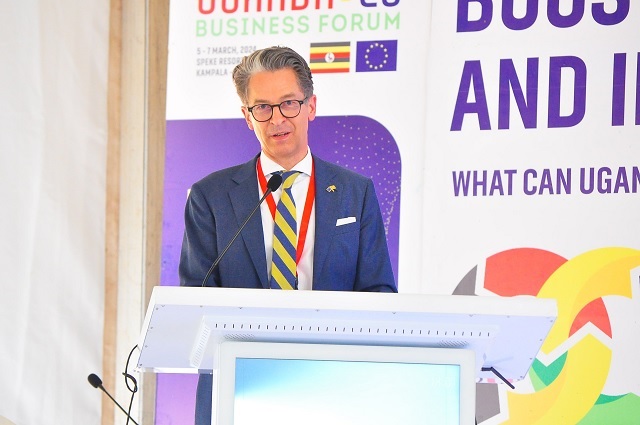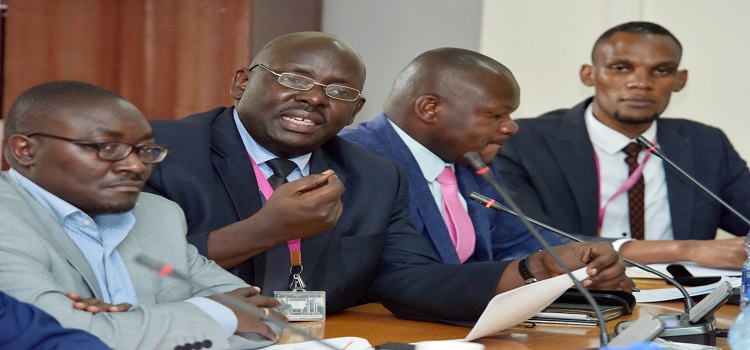The Uganda-European Union Business Forum, a pivotal three-day event aimed at fostering enhanced economic and business relations, has drawn to a close with both sides affirming their commitment to bolstering ties.
During the forum, significant agreements amounting to approximately 200 million euros were struck, with projects valued at 14 million euros already in progress.
Representatives from the EU Commission, state officials, and agency delegates collectively hailed the forum as a triumph.
President Yoweri Kaguta Museveni used the platform to express his disapproval of what he deemed “mixing politics with business” by certain Western nations. He specifically referenced trade sanctions imposed on Uganda and other African countries, purportedly due to human rights concerns.
Among the investment projects announced by the EU, a notable 5 million euro initiative targeting human rights in business and investments was highlighted. Named the “Advancing Respect for Business and Human Rights in Uganda” project, its primary objective is to mitigate human rights violations within Ugandan businesses, with a particular focus on issues affecting women. The EU statement elucidates that the project aims to achieve this through activities such as awareness campaigns, civil society advocacy, and bolstering institutional capacity.
In response to concerns raised, Amb. Jan Sadek, Head of the EU Delegation in Uganda, clarified that the aforementioned project is geared towards encouraging investors to uphold human rights standards and avoid transgressions. Caroline Adriansen, Head of Cooperation at the EU Delegation, echoed this sentiment, underscoring that instances of human rights abuses in businesses are indiscriminate of nationality and must be addressed universally.
Moreover, officials emphasized that forthcoming EU regulations banning coffee produced in deforested areas are not politically motivated but rather driven by environmental considerations. Amb. Sadek underscored that environmental preservation is a fundamental human right, and the EU is committed to global conservation efforts. He stressed that these regulations apply to all coffee-producing nations in Africa and beyond, not solely Uganda.
Considering that the EU constitutes Uganda’s largest single market for coffee, Amb. Sadek reassured that the EU remains invested in Uganda’s prosperity. The EU intends to support Uganda in meeting the stipulated requirements before the ban takes effect, emphasizing collaboration with various stakeholders across the coffee value chain.
Despite apprehensions regarding Uganda’s capacity to implement the necessary measures, including surveillance and traceability, State Minister for Privatization and Investments, Evelyn Anite, affirmed that government agencies are diligently working towards compliance. She asserted that Uganda’s commitment to forest conservation aligns with the EU regulations, thereby ensuring timely adherence to the deadline.
| Key Points | Details |
|---|---|
| Duration of Business Forum | Three-day event |
| Total Value of Agreements | Approximately 200 million euros |
| Value of Ongoing Projects | 14 million euros |
| Notable EU Investment | 5 million euro project targeting human rights in business and investments |
| Objectives of EU Project | Reduce human rights abuses in Ugandan businesses, particularly those affecting women |
| Compliance with Coffee Ban | EU assures support to ensure Uganda’s compliance with forthcoming regulations |
| Concerns Over Implementation | Apprehensions regarding Uganda’s capacity to implement necessary measures addressed by government officials |




















